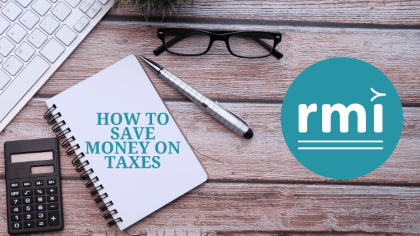With the tax season fully on we have asked our own Irfanali Moledina, the Managing Partner of RMI Professional Corporation, to share some tips on how to save money on taxes in Canada in this short video.
If you prefer reading, follow the transcription below the video. Enjoy!
Most commonly missed personal tax deductions
Good morning everyone. It’s Irfanali Moledina from RMI Professional Corporation, here today to talk about some common missed personal tax deductions. This video is being recorded in March and we all know our personal tax deadline here in Canada is the end of April, so now it’s best time ever to talk about personal taxes.
Today, I just want to mention a few ones as you’re preparing your own taxes or have a professional who’s actually preparing your returns. It’s very important to know and make sure that these deductions are being picked up on yearly basis. Sometimes, they can save you hundreds if not thousands of dollars every year, which obviously over time can add up very quickly.
Medical Expenses Tax deduction
The first most common mistake I see on personal returns is the missing on medical expenses. In Canada we’re allowed to claim our medical expenses such as dental. A lot of people have a Blue Cross, let’s say, and the premiums that they are paying, those are deductible. Also chiropractic, in some provinces you can even claim massage. The key with this is that about 3% of your income is something that can be claimed. Make sure you’re reporting all your medical expenses and maximizing this, especially within families.
If you have kids, any doctors or prescriptions or things like that, anything that you end up paying for you can actually claim. A portion of that is your write off.
union and professional dues
The next most common mistake that I see is union and professional dues. Sometimes what will happen is if you’re part of unions or even if you’re a professional, you have to pay for regulated licensing or even courses that you’re mandated to take. All of that is actually a tax deduction for you as well.
So, it’s very important to keep those receipts. Make sure they’re being submitted on an annual basis and make sure you’re maximizing your deductions.
moving expenses
Another big common one is if you’re moving for work. If you move closer than forty kilometers to be closer to work, deductions for moving can actually be deducted on your personal returns as well. This can include obviously the moving trucks that you’re hiring, but it can include storage as well.
It can even include the commissions on selling your primary residence if you have to pay real estate commissions, and we all know that can add up to be quite a bit.
So anytime you’re moving for work as long as you’re moving at least forty kilometers, you can actually claim a lot of these deductions.
student loans and childcare expenses
I have a couple more for you. Quick one – student loan interest, if you still have any student loans outstanding, that’s a tax deduction as well, and it gets missed quite often.
Childcare expenses – anybody with children, if you have them in a daycare or Montessori or even babysitting, all of that can be a deduction. It’s very important that you’re documenting the information for the childcare facility. If you have a babysitter, you need their name and social insurance number. If it’s a facility then you need their company name as well as their business number or GST number, if they’re registered. This way you can report that and get a deduction for the
childcare claim on that side.
employment expenses
And the last big one – sometimes many people have what’s called employment expenses. This year – in 2021 for 2020 taxes we’re obviously dealing with the Covid pandemic and many people are working from home so that counts as a part of your employment expenses.
Working from home you can write off a portion of your home expenses. The government has a new deduction this year. It’s a tax credit of $2 a day for every day that you worked at home. You can either go that route or you can go with the traditional claim where you can write off a portion of all your expenses be it rent or your insurance, property taxes, utilities and and write off a portion of all those expenses against your income and this goes beyond just home expenses.
Sometime employment expenses can also include a vehicle if you’re required to drive for work.
If you’re required to buy supplies, especially teachers can get a special teacher credit if they’re buying supplies for their students. So there’s many different deductions on that and you want to make sure you’re capitalizing and maximizing on those for sure.
book a free consultation
At RMI, your first consultation with us is always free. So if you have any questions always feel free to reach out.
We can be reached at 403-457-4232 or by email at info@rmiassociates.com.
Thank you and have a great day!



